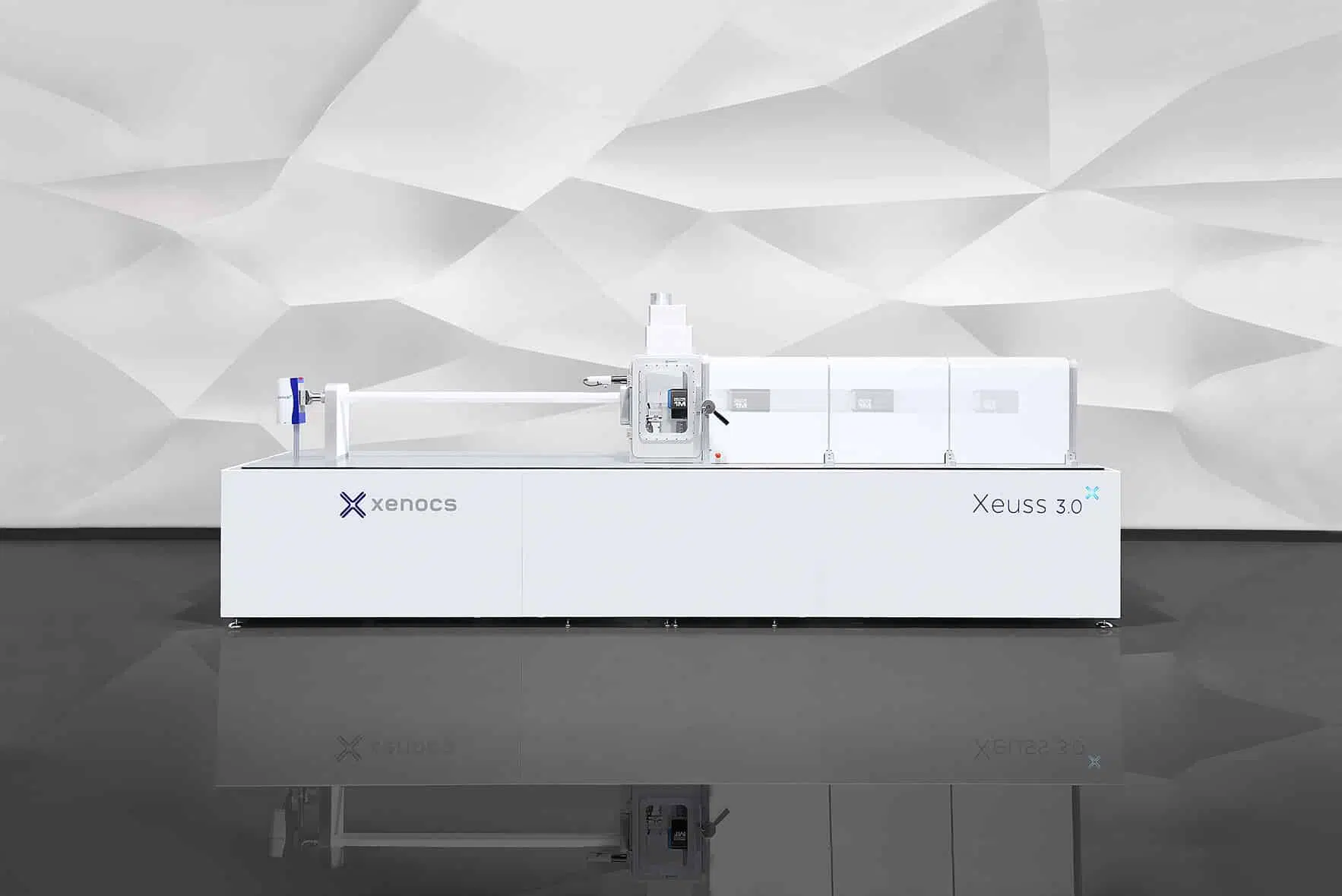Li, Shaojie; Chen, Taoyi; Liao, Xia; Han, Weiqiang; Yan, Zhihui; Li, Junsong; Li, Guangxian
Effect of Macromolecular Chain Movement and the Interchain Interaction on Crystalline Nucleation and Spherulite Growth of Polylactic Acid under High-Pressure CO2
Crystallization behavior of polylactic acid (PLA) under CO2 is meaningful due to its effect on foaming behavior during CO2 foaming, while present studies mainly concentrated on overall crystallization behavior. In this study, the effect of CO2 on nucleation and spherulite growth of PLA crystals was in situ investigated separately. During…
Cell wall structure and composition is affected by light quality in tomato seedlings
Falcioni, Renan; Moriwaki, Thaise; Perez-Llorca, Marina; Munné-Bosch, Sergi; Gibin, Mariana Sversut; Sato, Francielle; Pelozo, Andressa; Pattaro, Mariana Carmona; Giacomelli, Marina Ellen; Rüggeberg, Markus; Antunes, Werner Camargos
Light affects many aspects of cell development. Tomato seedlings growing at different light qualities (white, blue, green, red, far-red) and in the dark displayed alterations in cell wall structure and composition. A strong and negative correlation was found between cell wall thickness and hypocotyl growth. Cell walls was thicker under…
Toughening anti-overswelling semicrystalline polymer hydrogels with ultra-small hydrophobic nanoparticles
Meng, Xiaohui; Wu, Teng; Qiu, Dong
Semicrystalline polymer hydrogels (SC-gels) are intrinsically electrolyte tolerant and over-swelling resistant, emerging as promising candidates for applications in solution environments. However, SC-gels with high mechanical strength are usually brittle. In the present work, by introducing ultra-small hydrophobic nanoparticles, highly-stretchable SC-gels (15 times of its original length) with
Microstructure and properties of polyacrylonitrile based carbon fibers
Lu, Junshan; Li, Weiwei; Kang, Hongliang; Feng, Libang; Xu, Jian; Liu, Ruigang
The microstructure of polyacrylonitrile (PAN)-based carbon fibers with different mechanical properties was investigated. It was found that the tensile strength of the PAN-based carbon fibers generally decrease with the increase in the modulus. The properties of PAN-based carbon fiber are mainly controlled by the microstructure and microvoids. The increase in…
Development and characterization of a novel soy lecithin-stearic acid and whey protein concentrate bigel system for potential edible applications
Bollom, Mark A.; Clark, Stephanie; Acevedo, Nuria C.
Bigels are a new technology with great potential in the food industry. Their success with drug delivery suggests they may be able to deliver sensitive compounds in foods, such as probiotics and bioactives. The purpose of this study was to develop and characterize a novel, edible bigel system. The bigel…
Effect of the substrate temperature during gold-copper alloys thin film deposition by magnetron co-sputtering on the dealloying process
Chauvin, Adrien; Horak, Lukas; Duverger-Nédellec, Elen; Dopita, Milan; Tessier, Pierre-Yves; El Mel, Abdel-Aziz
Nanoporous gold is of great interest for many applications due to its three dimensional interconnected porosity at nanoscale. Among all currently use techniques to obtain nanoporous gold, dealloying is one of the most used method to create a well-controlled nanoporous morphology. Only few studies report on the creation of nanoporous…
Local mobility in electrochemically inactive sodium in hard carbon anodes after the first cycle
Jensen, Anders C. S.; Olsson, Emilia; Au, Heather; Alptekin, Hande; Yang, Zhengqiang; Cottrell, Stephen; Yokoyama, Koji; Cai, Qiong; Titirici, Maria-Magdalena; Drew, Alan J.
Sodium ion batteries are a promising alternative to current lithium ion battery technology, providing relatively high capacity and good cycling stability at low cost. Hard carbons are today the anodes of choice but they suffer from poor rate performance and low initial coulombic efficiency. To improve the understanding of the…
Time resolved alkali silicate decondensation by sodium hydroxide solution
Dupuis, Romain; Rodrigues, Donatien Gomes; Champenois, Jean-Baptiste; Pellenq, Roland; Poulesquen, Arnaud
Silica is by far the chemical compound the most widespread and used around the world: as a raw product in the buildings and roads industry, as concrete, or as a processed product in the manufacture of glass, ceramics or zeolites. In alkali silicate solutions often used to synthesize those…
Biomimetic Mineralized OrganicInorganic Hybrid Macrofiber with Spider Silk-Like Supertoughness
Yu, Yadong; He, Yan; Mu, Zhao; Zhao, Yueqi; Kong, Kangren; Liu, Zhaoming; Tang, Ruikang
Spider silk fibers (SSF) have a hierarchical structure composed of proteins with highly repetitive sequences and biomineralization is sophisticated in hierarchical organicinorganic constructions. By using inorganic hydroxyapatite (HAP) and organic polyvinyl alcohol (PVA) to simulate the rigid crystalline and flexible amorphous protein blocks of SSF, respectively, biomimetic mineralization is
Ultrathin Homogenous AuNP Monolayers as Tunable Functional Substrates for Surface-Assisted Laser Desorption/Ionization of Small Biomolecules
Liu, Zhen; Zhang, Peng; Kister, Thomas; Kraus, Tobias; Volmer, Dietrich A.
A series of ultrathin, homogenous gold nanoparticle (AuNP) substrates for surface-assisted laser desorption/ionization mass spectrometry (SALDI-MS) were prepared using a simple air/water interface approach. These SALDI substrates enabled soft ionization and provided significant improvements in terms of signal intensities and reduced background levels in comparison to other AuNP morphologies for


































